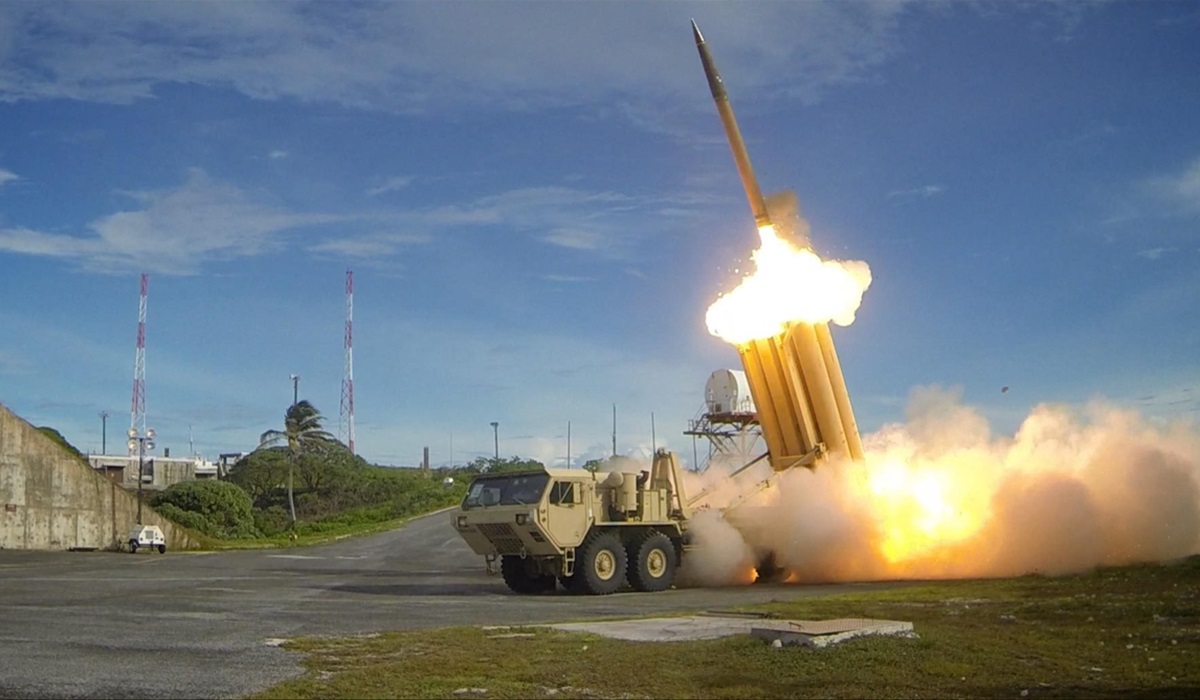American Boots on the Ground in Israel: Public Discontent with Biden Administration Soars
- TDS News
- U.S.A
- October 15, 2024

Image Credit, Creator: Ralph Scott | Credit: U.S. Department of Defense
It’s been nearly a week since President Joe Biden has announced that American soldiers will be deployed to Israel to operate the Terminal High Altitude Area Defense (THAAD) missile units. This decision, which brings at least 100 U.S. military personnel to the region, continues to spark a heated debate at home over America’s growing role in foreign conflicts. Many are questioning whether U.S. soldiers should continue to be involved in battles thousands of miles away, especially when their primary mission is to defend American soil.
For years, the U.S. has engaged in proxy wars in the Middle East, from Iraq to Afghanistan, and more recently, through its strategic alliances in Syria and other parts of the region. The cost of these wars, both in terms of lives lost and resources spent, has been staggering. Now, with U.S. boots on the ground in Israel, the question arises: Is this the best use of American military personnel, or should the focus shift toward more urgent domestic priorities?
Military experts point out that the THAAD missile systems require specialized training, and currently, only U.S. forces are capable of operating them. This dependency has led to a situation where American troops are again being placed in harm’s way. The growing concern is that if an American soldier is killed in the region, it will escalate the conflict, which will automatically put the U.S. into a larger confrontation with Iran. Such an outcome would not only deepen America’s involvement in the Middle East but could also lead to further loss of life—an outcome that too many Americans have experienced in previous wars.
The ongoing U.S. military presence in the Persian Gulf, where American forces are actively engaged in missile defense, further complicates the situation. The possibility of American casualties from hostile missile fire aimed at Israel raises the specter of the U.S. being drawn into a broader conflict. Many military analysts fear that such a scenario could prompt a direct U.S. response, leading to an expanded war with Iran—something that would have profound consequences not just for the region, but for the U.S. as well.
As the U.S. contemplates this deeper involvement, many Americans are voicing concerns about the nation’s priorities. With pressing needs at home—ranging from disaster relief funding for FEMA, to addressing healthcare costs, addiction crises, veterans’ affairs, reparations, and student loan forgiveness—some are questioning whether resources would be better spent on domestic issues. The U.S. has already invested billions in its military engagements abroad, and for many, the focus now should be on rebuilding the country from within.
This debate isn’t just about money—it’s about the human cost. Over the years, the U.S. has lost thousands of soldiers in conflicts far from its shores, and the burden of these losses continues to weigh heavily on the nation. Many Americans, including military families, are asking if it’s time to rethink the U.S. strategy of engaging in foreign wars, particularly when so many pressing issues remain unresolved at home.
Critics have also highlighted the economic risks of a potential escalation with Iran. A conflict in the region could lead to soaring gas prices, driving up the cost of living and negatively impacting the U.S. economy. With an election on the horizon, these economic challenges could shift the political landscape, especially if voters see the Biden administration as prioritizing foreign conflicts over domestic concerns.
The broader question that looms is whether U.S. military engagement abroad, particularly in defense of other nations, aligns with the priorities of the American people. As Richard Nixon once warned, no president should place the interests of another country above those of the United States. With the possibility of U.S. forces being drawn into an expanded war, many are now asking whether this is the best path forward.
America has long been a defender of global stability, but with the deployment of troops to Israel, a growing number of voices are asking whether this continued involvement in foreign conflicts is the best way to protect American interests. The loss of even a single American soldier weighs heavily, and as the U.S. faces its own challenges at home, the conversation is shifting toward whether it’s time to reprioritize—and focus on solving the problems that affect Americans most directly.








